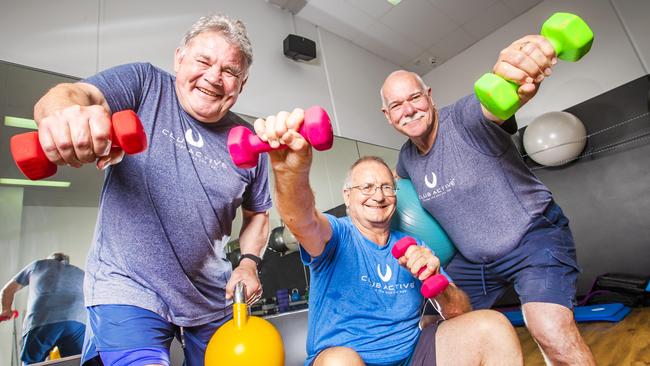Why Baby Boomers could lift Labor’s vote
Baby Boomers are looming as a major X-factor in the state election as experts predict a groundswell of “gratitude votes” flooding to Labor despite the LNP’s traditional dominance of the over-65 age bracket.
QLD Votes
Don't miss out on the headlines from QLD Votes. Followed categories will be added to My News.
Baby Boomers are looming as a major X-factor in the state election as experts predict a groundswell of “gratitude votes” flooding to Labor for Annastacia Palaszczuk’s handling of COVID-19.
Political scientists believe the LNP’s traditional dominance of the over-65 age bracket could be swamped by vulnerable voters who are worried about their health.
Analysis: Why ALP mud isn’t sticking to Deb Frecklington
Health staff told to work harder to fund Labor’s key election promise
Qld election 2020: COVID-19 drives record early voter turnout
Qld election 2020: Clive Palmer’s death tax claim stirs fear in Labor
Analysis by The Courier-Mail shows a swag of the LNP’s most marginal seats have some of the state’s highest ratios of Baby Boomers.
QUT adjunct associate professor John Mickel said voters in that group often had pre-existing health conditions.

“People in that age group are bigger consumers of news and it would not have escaped them what has happened and what is happening overseas right now, and there is a sense of thank goodness we live in Queensland,” he said.
“Labor doesn’t get a majority there, but the overwhelming majority enjoyed by the LNP might be eaten into.”
Of the 14 seats the LNP holds with a margin of less than 5 per cent, more than half have a Baby Boomer population higher than the state average of 15.8 per cent.
Six of the seven seats with the highest percentage of over-65s are in the southeast. Bundaberg, which the LNP holds with a 4.2 per cent margin, is the lone regional seat with more over-65s than average, with nearly one in four.
The biggest threat for the LNP from the gratitude vote is in Pumicestone, centred on Bribie Island, where nearly one in three voters is over 65 and the party is defending a margin of less than 1 per cent.
Other marginal LNP seats with high over-65s populations are Caloundra (24 per cent), Currumbin (20 per cent), Glass House (19 per cent) Burleigh (18 per cent) and Bonney (18 per cent).
They have been regular campaign stops for both parties during the campaign, indicating both sides believe they can sway enough swinging voters to get over the line.
Ms Palaszczuk also used a captain’s pick in Burleigh to install surfing champion Wayne “Rabbit” Bartholomew as Labor’s candidate.
Griffith University senior lecturer Paul Williams said the “gratitude vote” loomed as a major unknown as issues such as border closures had never before been in play.
“Before the writs were issued I had a sense that there was going to be a large wave of a silent majority gratitude vote that would easily re-elect Labor, but not in a landslide,” Dr Williams said. “But given that (LNP leader Deb) Frecklington’s fired up the last week and a half I think it will be a closer run thing.”
He said the gratitude vote was most likely to flow from people not economically affected by the pandemic.
“There’s no love for the Labor Party, maybe not even love for the premier, but there’s a sense of respect and gratitude for the premier but not the government,” he said.
Self-funded retiree Peter English said he usually leaned towards the Labor Party but the emotional toll of the border closures on families turned him to the LNP. But long-time Labor voter Bill Hipgrave praised the Palaszczuk government’s border stance.
“We could’ve ended up like France, or the UK,” he said.
OVER 65s BY SEAT
Pumicestone (Held by LNP 0.84%)
29.49%
Caloundra (LNP 3.41%)
24.46%
Bundaberg (LNP 4.2%)
22.60%
Currumbin (LNP 1.23%)
20.10%
Glass House (LNP 3.43%)
19.08%
Burleigh (LNP 4.85%)
17.71%
Bonney (LNP 1.69%)
17.68%
STATEWIDE TOTAL
15.80%
Originally published as Why Baby Boomers could lift Labor’s vote

